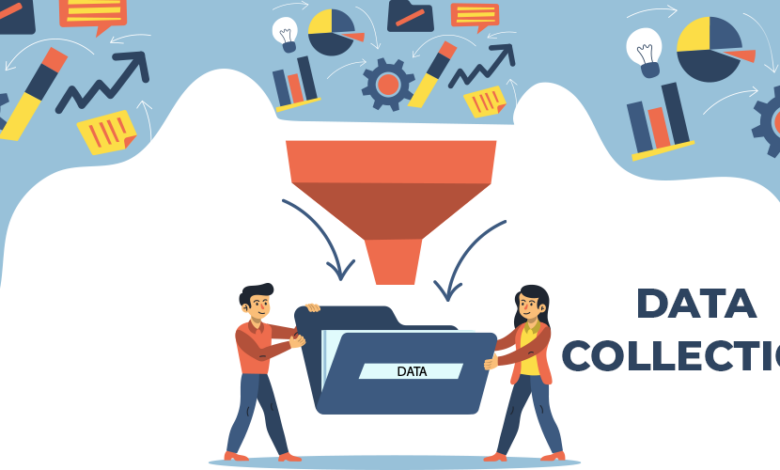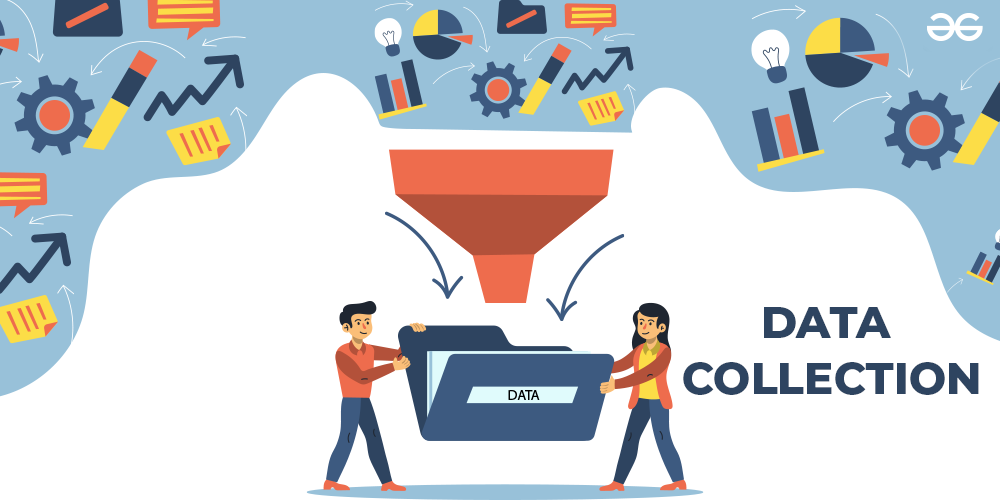
Google Curates Data for AI Whistleblowers
Google Curates Data for AI Whistleblowers: Imagine a world where artificial intelligence is so powerful it can make decisions that impact our lives, but without any oversight. What happens when an AI developer discovers a flaw in the system that could lead to harm?
This is where the concept of an “AI whistleblower” comes into play, and Google, as a major player in AI development, finds itself at the center of this emerging ethical dilemma.
Google’s vast data collection and curation practices play a crucial role in shaping the development of AI systems. The company’s algorithms, trained on massive datasets, influence the decisions made by AI, raising concerns about transparency, bias, and potential misuse.
As AI becomes increasingly integrated into our lives, understanding the role of data curation and its potential impact on AI ethics is essential.
The AI Whistleblower Phenomenon
In an era marked by the rapid advancement of artificial intelligence (AI), the concept of an AI whistleblower has emerged as a compelling and ethically complex phenomenon. This novel figure represents a potential safeguard against the potential misuse of AI, raising critical questions about accountability, transparency, and the very nature of responsibility in a world increasingly shaped by intelligent machines.
The Nature of an AI Whistleblower
An AI whistleblower is an individual or entity that exposes the unethical or harmful practices of an AI system. They may be developers, researchers, users, or even the AI itself, acting through its programming or emergent capabilities. The motivations behind their actions can vary, ranging from ethical concerns to personal experiences with the AI’s negative consequences.
Real-World Scenarios for AI Whistleblowers
The rise of AI in various domains, from healthcare to finance, presents numerous scenarios where AI whistleblowers could play a crucial role. Here are a few examples:
- A medical AI developer could expose biased algorithms leading to discriminatory healthcare outcomes.
- An AI researcher could reveal a flaw in a facial recognition system that unfairly targets certain ethnic groups.
- An AI chatbot could expose its own limitations and potential for manipulation, raising concerns about user privacy and autonomy.
Ethical Considerations and Potential Risks
The emergence of AI whistleblowers raises complex ethical considerations and potential risks:
- Defining the boundaries of responsibility: Who is ultimately responsible for the actions of an AI system – the developer, the user, or the AI itself?
- The potential for misuse: Could AI whistleblowers be used to spread misinformation or sow discord?
- The impact on innovation: Will the fear of whistleblowing stifle AI research and development?
Google’s Role in Data Curation for AI
Google is a behemoth in the world of data collection and curation, playing a crucial role in shaping the landscape of AI development. Its vast network of services, including search, Gmail, Maps, and Android, generates an immense amount of data about user behavior, preferences, and interactions.
This data serves as the fuel for Google’s AI systems, enabling them to learn, adapt, and deliver personalized experiences.
The Influence of Google’s Data Practices on AI Development
Google’s data practices have a profound impact on the development of AI systems. The company’s massive datasets provide valuable training material for machine learning algorithms, allowing them to learn patterns, make predictions, and perform tasks with increasing accuracy. This data-driven approach has led to breakthroughs in various AI domains, such as natural language processing, computer vision, and machine translation.
Privacy and Ethical Considerations of Google’s Data Practices
Google’s data collection practices raise concerns about privacy and ethical considerations. The sheer volume of data collected, coupled with its potential for misuse, has sparked debates about user privacy and data security. Critics argue that Google’s data practices may lead to discriminatory outcomes in AI systems, as algorithms trained on biased data can perpetuate existing societal biases.
- Data Bias:AI systems trained on biased data can reflect and amplify existing societal biases, leading to unfair or discriminatory outcomes. For instance, an AI system trained on a dataset with predominantly male faces might struggle to recognize female faces accurately.
- Data Security:The massive amounts of personal data collected by Google are vulnerable to breaches and misuse. Unauthorized access to this data could have severe consequences for individuals and society as a whole.
- Transparency and Accountability:Google’s data collection practices often lack transparency, making it difficult for users to understand how their data is used and to hold the company accountable for potential misuse.
Potential Conflicts of Interest
The role of Google in AI development, particularly its data curation practices, raises critical questions about potential conflicts of interest. Google’s vast data collection and its use in training AI models create a complex landscape where the company’s own interests might clash with the goals of AI whistleblowers, who are seeking to expose ethical concerns.
Impact on Whistleblowers’ Ability to Expose Ethical Concerns
Google’s data curation practices can significantly impact the ability of AI whistleblowers to expose ethical concerns. The sheer volume and complexity of data used in AI development make it challenging for whistleblowers to identify and analyze potential biases, risks, or ethical issues embedded within the data.
- Limited Access to Data:Whistleblowers often lack access to the specific datasets used in AI model training. This limited access hinders their ability to conduct independent analysis and identify potential ethical problems.
- Data Obfuscation:Google’s data anonymization and aggregation techniques can obscure crucial information about the origin and characteristics of the data, making it difficult for whistleblowers to understand the potential biases or ethical implications.
- Data Ownership and Control:Google’s ownership and control over the data used in AI models create a barrier for whistleblowers who want to access and analyze the data independently. This dependence on Google for data access can limit their ability to conduct independent investigations.
It’s fascinating how Google curates data for AI whistleblowers, highlighting the potential for AI to be used for good and bad. Meanwhile, it seems things are returning to normal after operations resumed gradually after all flights grounded across US federal agencies.
Perhaps this recent disruption has brought into focus the importance of responsible AI development, which is something Google’s data curation efforts could play a vital role in.
Potential Scenarios Where Google’s Data Practices Might Be Perceived as Hindering Transparency or Accountability
Several scenarios illustrate how Google’s data practices might be perceived as hindering transparency or accountability in AI development. These scenarios highlight the potential for conflicts of interest to arise and the need for greater transparency and oversight.
It’s fascinating to see how Google is curating data for the AI whistleblower, considering the potential ethical implications. Meanwhile, the news that Goldman Sachs missed profit estimates due to a slump in dealmaking and asset management highlights the volatility of the financial landscape.
It’s a reminder that while tech giants are grappling with AI ethics, traditional financial institutions are facing their own challenges in a rapidly changing world.
- Bias Detection and Mitigation:Google’s data curation practices may prioritize efficiency and model performance over ethical considerations. This can lead to the exclusion of data that could reveal biases or ethical issues, hindering the development of truly fair and equitable AI systems.
- Data Privacy and Security:Google’s data collection practices raise concerns about privacy and security. The use of sensitive personal data in AI training without adequate safeguards can lead to potential breaches and misuse, making it challenging for whistleblowers to expose such issues.
- Lack of Public Transparency:Google’s limited transparency regarding its data curation practices can create a lack of trust and accountability. Without clear information about the data used in AI development, it becomes difficult for whistleblowers and the public to assess the ethical implications and potential risks associated with these systems.
The Impact on Trust and Transparency

The way Google curates data for AI development has significant implications for the public’s trust in artificial intelligence. Transparency and accountability are crucial for building public confidence in AI, and Google’s data practices play a central role in shaping these aspects.
Impact on Trust in AI
Google’s data curation practices can influence public trust in AI in both positive and negative ways.
- Positive Impact:If Google demonstrates transparency and ethical data practices, it can foster trust in the AI systems it develops. By openly disclosing how data is collected, processed, and used, Google can build confidence in the fairness and reliability of its AI.
- Negative Impact:Conversely, if Google’s data curation practices are perceived as opaque or biased, it can erode public trust in AI. Concerns about data privacy, algorithmic bias, and potential misuse of data can lead to skepticism and distrust in the technology.
The news about Google curating data for an AI whistleblower is a concerning development. It raises questions about the transparency and accountability of tech giants in the age of artificial intelligence. This situation is even more alarming when you consider the massive government funding bill that’s been criticized as “the worst in history” worst in history critics rip 1 7 trillion government funding bill.
The potential for misuse of AI, especially with such vast sums of money at stake, is a real and present danger. It’s crucial that we have robust regulations and oversight in place to ensure that AI is developed and used responsibly.
Impact on Transparency in AI Development
Transparency in AI development is essential for understanding how AI systems work and for ensuring accountability. Google’s data practices play a crucial role in shaping transparency.
- Increased Transparency:By making its data curation practices more transparent, Google can enhance the understanding of how AI systems are developed and deployed. This can help address concerns about black box AI, where the decision-making processes are hidden from view.
- Reduced Transparency:If Google’s data practices are opaque, it can hinder transparency in AI development. This can lead to a lack of understanding about how data is used, potentially resulting in biased or unfair AI systems.
Impact on Public Perception of AI Ethics and Accountability
Public perception of AI ethics and accountability is heavily influenced by how data is curated and used. Google’s data practices have a significant impact in this area.
- Enhanced Ethical Perception:By adhering to ethical principles in data curation, Google can contribute to a positive perception of AI ethics. This includes addressing issues such as data privacy, bias mitigation, and responsible data use.
- Negative Ethical Perception:If Google’s data practices are perceived as unethical or irresponsible, it can damage public perception of AI ethics. This can lead to concerns about the potential misuse of AI and the need for stronger regulations and oversight.
Recommendations for Best Practices

The AI whistleblower phenomenon underscores the urgent need for robust ethical frameworks and transparent practices in the development and deployment of artificial intelligence. This section Artikels recommendations for Google to enhance its data curation practices, address potential conflicts of interest, and foster a culture of responsible AI development.
Data Curation Transparency and Ethical Considerations
Google’s data curation practices play a crucial role in shaping the ethical landscape of AI development. To enhance transparency and ethical considerations, Google should implement the following best practices:
- Publish detailed data usage policies:Clearly Artikel how Google collects, processes, and uses data for AI development, including specific details about data sources, anonymization techniques, and data retention policies.
- Implement data provenance tracking:Develop a system to track the origin and transformation of data used in AI models, allowing for greater accountability and transparency in data usage.
- Establish independent data ethics review boards:Create independent bodies to review data curation practices, assess potential biases and ethical implications, and provide recommendations for improvement.
- Conduct regular data audits:Regularly assess data sets for biases, inaccuracies, and potential ethical concerns. These audits should be conducted by independent experts and the findings should be publicly disclosed.
- Encourage open-source data sets:Promote the use of open-source data sets, allowing for greater scrutiny and collaboration in AI development. This fosters transparency and reduces the potential for proprietary data sets to be used in ways that are not fully understood or scrutinized.
Addressing Potential Conflicts of Interest, Google curates data for ai whistleblower
Google’s vast data holdings and diverse business interests present potential conflicts of interest in AI development. To address these concerns, Google should:
- Establish clear guidelines for data use across different business units:Define clear boundaries and protocols for data sharing and utilization across Google’s various business units, ensuring that data is not used in ways that could create conflicts of interest.
- Implement independent data access controls:Implement systems that restrict access to sensitive data based on specific roles and responsibilities, preventing unauthorized access and potential misuse.
- Develop conflict-of-interest disclosure policies:Establish clear policies for disclosing potential conflicts of interest related to data usage and AI development, ensuring transparency and accountability.
- Create independent oversight committees for data governance:Establish committees composed of independent experts to oversee Google’s data governance practices, ensuring that data is used responsibly and ethically across all business units.
Engaging with AI Whistleblowers
Google should establish a robust framework for engaging with AI whistleblowers, ensuring their concerns are addressed effectively and confidentially. Key recommendations include:
- Create a dedicated whistleblower hotline:Establish a confidential and secure channel for AI whistleblowers to report concerns about data misuse, ethical breaches, or other issues related to AI development.
- Provide clear whistleblower protection policies:Implement policies that protect whistleblowers from retaliation and ensure they can report concerns without fear of consequences.
- Establish independent whistleblower review boards:Create independent bodies to investigate whistleblower reports, ensuring a fair and impartial assessment of the concerns raised.
- Promote a culture of open dialogue and feedback:Encourage a culture of open communication and feedback within Google, allowing employees to raise concerns and contribute to ethical AI development.
Epilogue: Google Curates Data For Ai Whistleblower
The rise of AI whistleblowers highlights the urgent need for greater transparency and accountability in the development and deployment of AI systems. Google, as a leading force in this field, must address the potential conflicts of interest that arise from its data practices and work collaboratively with stakeholders to establish ethical guidelines for responsible AI development.
By fostering a culture of transparency and engaging with AI whistleblowers, Google can ensure that AI serves humanity in a way that is both ethical and beneficial.





